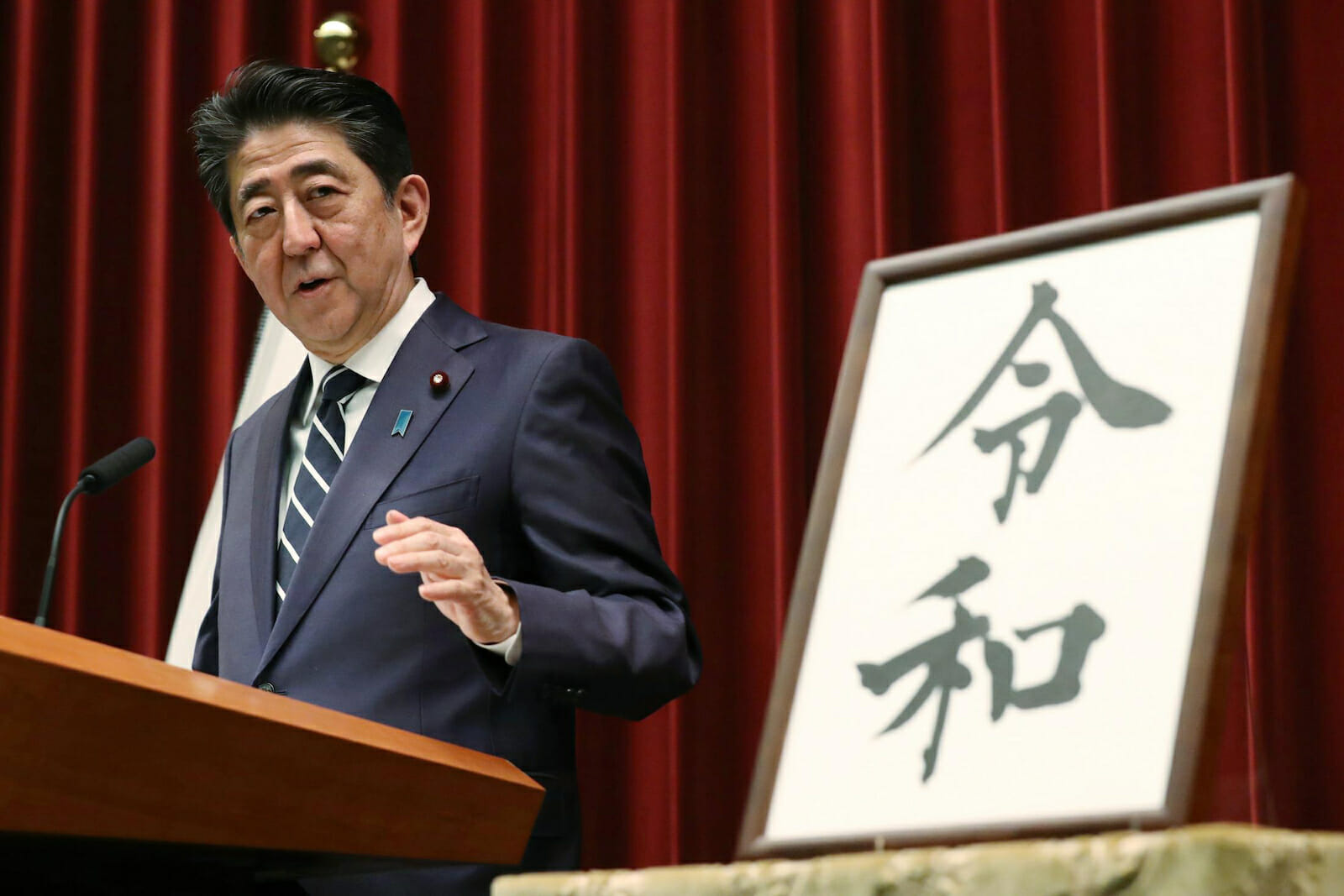
Japan’s Reiwa Era: Will Shinzo Abe be able to ‘Make peace’ by Resolving the Abduction Issue with North Korea?
This year, there have been many headlines from Japan that have focused on former Emperor Akihito’s abdication from the Chrysanthemum Throne. As of April 30th, Akihito has officially relieved himself of his imperial duties from the oldest patriarchal monarchy in the world, and his son, the former Crown Prince Naruhito has succeeded him as the next Emperor. As the new imperial leader of Japan, Emperor Naruhito has already made history by becoming the first emperor born in the post-war era.
I recall scrolling through my Twitter feed on the evening of March 31st—there is a 13-hour time difference between Japan and where I reside in Indiana—when on April 1st, Chief Cabinet Secretary Yoshihide Suga announced the name of the new era that would accompany the enthronement of then-Crown Prince Naruhito: Reiwa (令和). Initially, while I was enraptured by the simplicity of the kanji characters chosen to write the name of the new era, there was something else far more enticing to my ears—the word Reiwa rhymes with the Japanese word for peace: Heiwa.
Prime Minister Shinzo Abe confirmed that the name Reiwa originated from the Manyoshu, one of Japan’s oldest collections of poetry dating back to over a thousand years ago. Some critics have expressed a great distaste for the chosen era name because it evokes the imagery of pre-war, militaristic Japan with the first kanji of rei possessing the meaning of “order” and “command.” However, the Japanese Ministry of Foreign Affairs clarified that Reiwa means “beautiful harmony” which can arguably be a substitute phrase for the word “peace.”
With all of this to consider, one question has been tickling my brain since this announcement was first made: Is this rhyme only a coincidence, or was this a calculated move on the part of the Abe cabinet and the selection committee to associate this new era name with peace, both in rhyme and meaning? While I do not have the temerity to singlehandedly answer this question, I will at least attempt to examine how Abe hopes to use the commencement of the Reiwa era and its definition to accomplish one of his top administrative priorities: resolving the Japanese abduction issue once and for all, thus providing closure or “peace” for the Japanese public.
Today, the Japanese Ministry of Foreign Affairs has confirmed that at least 17 Japanese citizens were abducted by North Korean spies between 1977 and 1983. While former Japanese Prime Minister Junichiro Koizumi successfully negotiated the release of 5 Japanese nationals in October 2002 by traveling to Pyongyang to meet with Kim Jong-Il in-person, more than half of the abductees remain unaccounted for. As these abductions violate Japanese sovereignty, and with North Korea’s horrendous human rights record, Japan has maintained a strong stance of “maximum pressure.” Abe’s New York Times op-ed from September 2017 called for a collective effort on the part of the international community to impose harsh sanctions that would make it extremely difficult for North Korea’s enablers to sell raw materials that allow the regime to stockpile nuclear weapons. More recently, in December 2018, the Japanese government organized an international symposium, calling for the immediate return of the Japanese abductees and further denounced the repression of the North Korean population.
However, over these past few months, it is quite evident that Abe and his cabinet have had a change of heart. Looking back at the Singapore summit between President Trump and Kim Jong-Un in June 2018, Abe seems to think that Japan might capitulate, because the Singapore Summit yielded little progress, if any, for Japan. While Trump discussed the abduction issue with Kim Jong-Un per Abe’s request, Pyongyang claims that the abduction issue is “resolved.” Sadly, North Korea has also reneged on their 2014 agreement with Japan to investigate further the abduction issue by dissolving their investigative committee.
In attempts to appease North Korea, Abe and his cabinet announced in March that for the first time since 2008, Japan will not partake in a draft submission to the UN that would otherwise investigate further the human rights situation in North Korea. In addition, the Japanese government omitted the phrase “maximum pressure” from their 2019 Diplomatic Bluebook. Ultimately, Abe is eagerly awaiting any opportunity to engage in a direct dialogue with Kim Jong-Un himself, even if it is “unconditional.”
In short, Abe’s priority to resolve the abduction issue is compelling to say the least. If the Reiwa era began with tangible steps towards achieving this goal, I may be more inclined to associate Reiwa with the word, Heiwa, both in rhyme and meaning. However, as of now, unfortunately, I am not optimistic that North Korea will voluntarily eradicate what is second-nature to them: violating international treaties and depriving their people of basic human rights. Abe’s desperation is palpable and if he is able to initiate diplomatic talks with the regime, it behooves him to remain openly pragmatic in negotiations with Kim Jong-Un.
